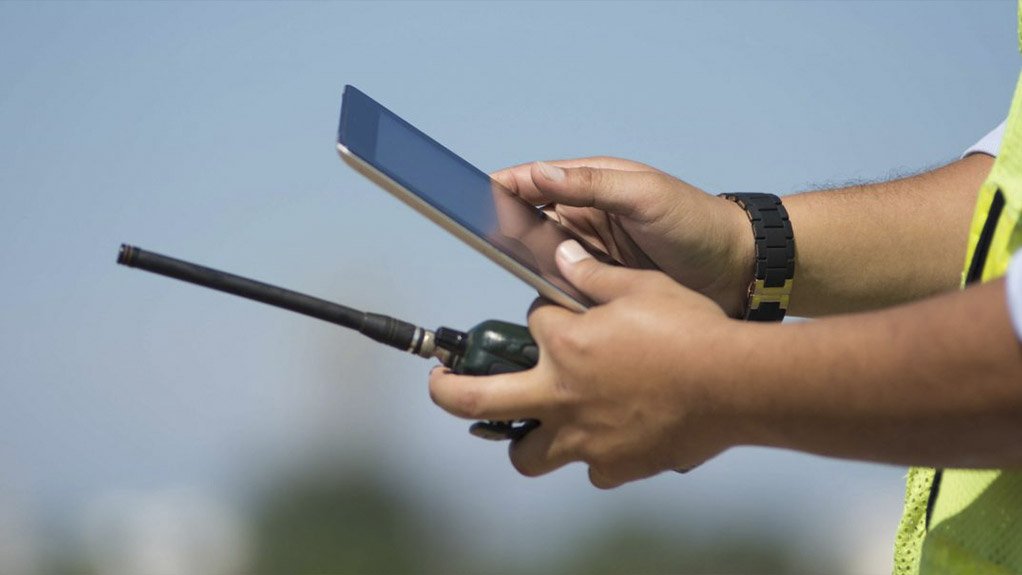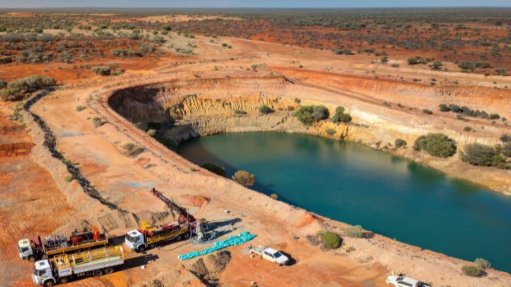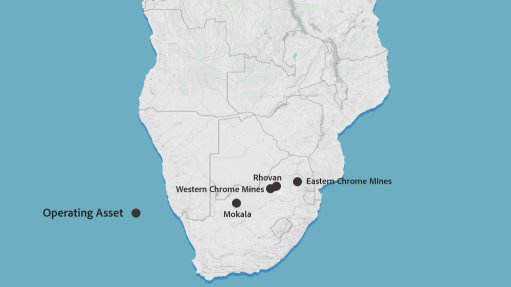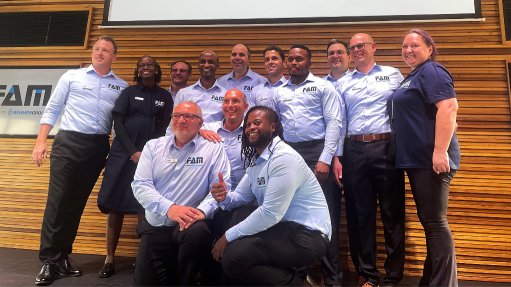Is convenient repair request logging the key to improved uptime?
This article has been supplied.
The right tools, appropriate systems and accurate data could make a considerable impact on the ease and speed at which equipment is repaired in your organisation. Verdantix's latest research suggests that the Covid-19 pandemic are driving organisations worldwide to:
Invest more in technologies that enable remote operations to ensure business continuity, and
Those mobile applications are seen as an effective form of digital innovation.
We are currently in the adoption phase of these technologies, which means that there are still plenty of opportunities to improve such products. It is easy to get over-excited about the functions and convenience that mobile technologies promise. Convenience should, however, be seen for what it is; a product characteristic that makes adoption by employees more enticing, while product features would be rendered useless unless the data generated can be shared among applicable enterprise systems.
"Mobile technology doesn't sit in isolation. The intent behind it is to get information in and out of core systems to enable staff, clients, and everybody who needs to collaborate on a task," says Stefan Swanepoel, the On Key EAMS Product Manager.
Marthinus Burger, '”Pragma's Head of Projects and Consulting is an asset management specialist with more than 15 'years' experience in CMMS and EAMS implementations, looks at it from a more practical perspective. "While it is all about the apps, it is not just all about the apps. To get the maximum value from mobile applications, you have to ensure that the Work Management and Control process is efficient and that the apps you deploy guides people to provide the right information throughout the process."
As an engineering firm that has seen our clients reap the benefits of improved data velocity and accuracy many times over, Pragma continuously invests in improving our suite of products. Our latest range of apps can significantly improve work identification and feedback on the equipment that needs maintenance or repairs. Our apps can integrate with On Key EAMS, with other systems of record and with each other. Why is this significant? It gives users access to a consolidated set of information and enables them to deliver work more efficiently. While a user might only use one app, they might be interacting with multiple systems on the back-end without realising it. It simplifies the experience and makes it a lot easier to use.
First, let's have a look at the common challenges traditional work order systems create.
| Challenge | Details |
|
Inconvenient logging processes |
Often employees find it inconvenient to log issues or breakdowns because they don't know where to find the necessary templates, or sending an email becomes a hassle or forgotten by the time one return to their computer. |
|
Ineffective paper-based systems |
Unfortunately, this leads to low data velocity, data capturing errors, and information getting lost. Due to a lack of guidance, a person might specify the wrong equipment for maintenance, leading to incorrect planning and the actual issue not getting resolved in time. |
| No visibility on my current and previous requests | A lack of feedback on work could discourage employees from logging future work requests or lead to duplicate requests from the same or multiple people on the same piece of equipment. |
|
Duplicate requests |
When the validation and verification of requests aren't done correctly, logging multiple requests on the same equipment occurs easily. It could mean that the planning and scheduling team either double plan work or cancel requests thinking that someone else has already planned for it. |
|
Unclear description of work needed |
Often, and especially with people without a background in maintenance, work requests get logged with incomplete and |
| unstructured information, slowing down the entire process. In turn, automating and expediting work becomes even more complex. |
| Difficult to gather feedback or confirmation of work done | Outdated systems often make it difficult for the person who logged a call to add additional information after submitting their request. The work planning and control team might also find it difficult to get hold of the right person to ask for additional information, especially in a facilities environment, where the person who logged the call is not 'isn't part of the maintenance team. |
Service Request App
The Service Request App is designed to make outdated work identifications more convenient and easier to identify the correct equipment. The team did this by creating a reactive web app that works on mobile or desktop and can be accessed using a QR code or a link. Registered or unregistered users access the app simply by scanning the code with their preferred QR scanner.
Furthermore, the app allows anybody to log a call to see whether there are currently requests logged on that particular piece of equipment. Depending on organisational requirements, more information like progress on existing calls can be given. This feature prevents duplicate requests. The app's form builder is fully customisable, allowing organisations to specify which information has to be included as part of the work request, which aids work planners with the correct information from the get-go. Documentation management, such as photo uploads, is also handled to assist in the correct classification of documents.
While automating and expediting work is complex, the apps allow configurable validation upon request submission, which serves as the first level of work validation. For instance, should a person indicate that the work is urgent, that work request can be expedited.
Feedback app
The Feedback app is intended to make the process of getting more information from the requester easier.
The app contains various screens which could reach the requester via email, SMS or other forms of communication like WhatsApp or Teams webhooks. Simply put, the app closes the feedback loop from the time that a work request is logged until it is confirmed that the work is done and the request can be completed. The app can be integrated with the Service Request app and is designed to create a seamless user experience.
Work Arranger
The Work Arranger app helps supervisors and tradespeople to manage their work more efficiently. As workers who are often out in the field, this app makes managing their work significantly more convenient and equips the worker with all the information they need to do their work in the palm of their hand.
The app gives supervisors an overview of the work assigned to their team or department and the ability to accept work and assign work to team members. On the other hand, tradespeople can see all historical and current work assigned to them. The app's chat functionality allows team members to engage with each other as needed.
Field Engineering app
When executing work, the Field Engineering app comes into play. It is a progressive web app that enables offline capabilities and taps into native mobile features such as GPS location, notifications and the camera. With its status and work-controlled feature sets, the app allows for a very curated experience. It gives the tradesperson or field engineer the exact information on what they need to do now based on their role and the step in the process they find themselves in.
The app continuously interacts with a server in the cloud, which in turn interacts with the EAMS. It leverages the ' 'server's resources to get the information into a consumable format making it faster. Changes made on the app syncs every time it connects to the internet, and work completed do not get lost. Additional features include Asset Identification and Verification work task viewing, creation and completion, work identification, over inspections, viewing and updating condition monitoring history and more.
Rapid application development
The suite of On Key apps developed on ' 'Pragma's rapid application development platform all work in support of responsible asset management and care.
This article first appeared on www.pragmaworld.net. View the original article here
Article Enquiry
Email Article
Save Article
Feedback
To advertise email advertising@creamermedia.co.za or click here
Announcements
What's On
Subscribe to improve your user experience...
Option 1 (equivalent of R125 a month):
Receive a weekly copy of Creamer Media's Engineering News & Mining Weekly magazine
(print copy for those in South Africa and e-magazine for those outside of South Africa)
Receive daily email newsletters
Access to full search results
Access archive of magazine back copies
Access to Projects in Progress
Access to ONE Research Report of your choice in PDF format
Option 2 (equivalent of R375 a month):
All benefits from Option 1
PLUS
Access to Creamer Media's Research Channel Africa for ALL Research Reports, in PDF format, on various industrial and mining sectors
including Electricity; Water; Energy Transition; Hydrogen; Roads, Rail and Ports; Coal; Gold; Platinum; Battery Metals; etc.
Already a subscriber?
Forgotten your password?
Receive weekly copy of Creamer Media's Engineering News & Mining Weekly magazine (print copy for those in South Africa and e-magazine for those outside of South Africa)
➕
Recieve daily email newsletters
➕
Access to full search results
➕
Access archive of magazine back copies
➕
Access to Projects in Progress
➕
Access to ONE Research Report of your choice in PDF format
RESEARCH CHANNEL AFRICA
R4500 (equivalent of R375 a month)
SUBSCRIBEAll benefits from Option 1
➕
Access to Creamer Media's Research Channel Africa for ALL Research Reports on various industrial and mining sectors, in PDF format, including on:
Electricity
➕
Water
➕
Energy Transition
➕
Hydrogen
➕
Roads, Rail and Ports
➕
Coal
➕
Gold
➕
Platinum
➕
Battery Metals
➕
etc.
Receive all benefits from Option 1 or Option 2 delivered to numerous people at your company
➕
Multiple User names and Passwords for simultaneous log-ins
➕
Intranet integration access to all in your organisation





















